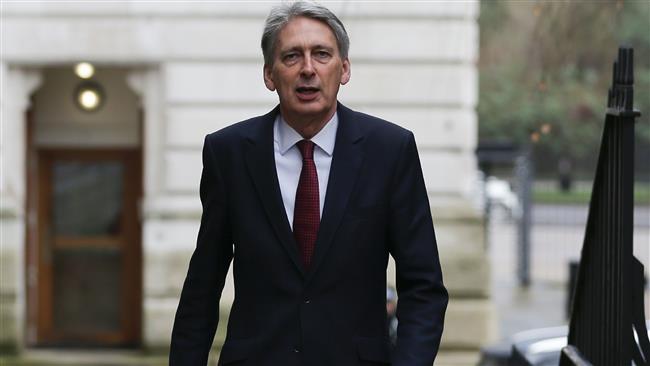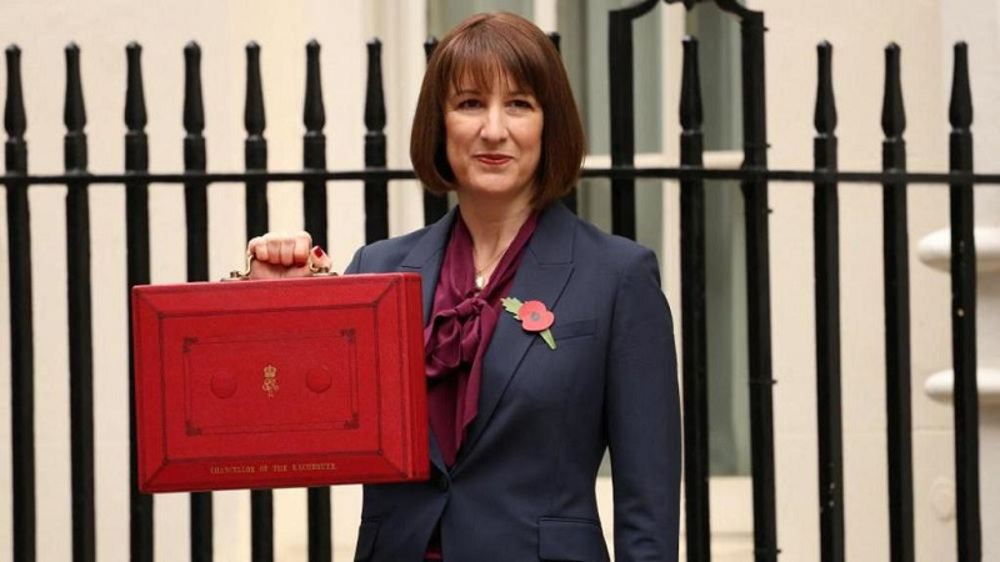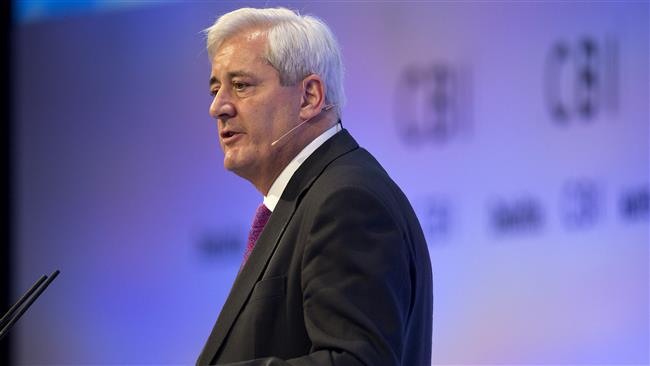Britain to ‘fight back’ in Brexit talks with EU
British Chancellor of the Exchequer Philip Hammond says the UK will “fight back” to get what it wants in talks with the European Union to leave the bloc.
Hammond appeared on the British media on Sunday, vowing to show the country’s “fighting spirit” in the talks, set to begin by the end of March and continue for two years.
"If there is anybody in the European Union who thinks that if we don't do a deal with the European Union, if we don't continue to work closely together, Britain will simply slink off as a wounded animal, that is not going to happen,” he said. "British people have a great fighting spirit and we will fight back. We will forge new trade deals around the world. We will build our business globally.”
Hammond’s comments follow relatively shocking remarks by Prime Minister Theresa May, asserting earlier that no deal with the EU is better than a bad deal.
Hammond also echoed the premier’s stance, noting that the country “will go on from strength to strength and we will do whatever we need to do to make the British economy competitive and to make sure that this country has a great and successful future."
He also warned that the British negotiators "expect to be able to achieve a comprehensive free trade deal with our European Union partners, but they should know that the alternative isn't Britain just slinking away into a corner."
May is expected to trigger Article 50 of the EU Treaty this month to begin the official process of withdrawing from the bloc.
In a landmark referendum held on June 23, nearly 52 percent of British voters, amounting to more than 17 million citizens, opted to leave the EU, a decision that sent shock waves throughout the world.
Those in favor of a British withdrawal from the EU argued that outside the bloc, London would be better positioned to conduct its own trade negotiations, better able to control immigration and free from what they believe to be excessive EU regulations and bureaucracy.
Those in favor of remaining in the bloc believed that leaving it would risk the UK's prosperity, diminish its influence over world affairs, and result in trade barriers between the UK and the EU.
VIDEO | Jordanians calls for action against Israeli aggressions in West Asia
As polls close, Trump takes early lead against Harris
VIDEO | Iran, Pakistan vow to resist Israeli genocidal actions in Gaza
Israeli strike on Lebanon kills at least 15 people
Israeli forces kill 7 more Palestinians in West Bank
VIDEO | US presidential election
Netanyahu fires military affairs minister Gallant
Hezbollah attacks turn Israel’s Haifa into a ghost town












 This makes it easy to access the Press TV website
This makes it easy to access the Press TV website